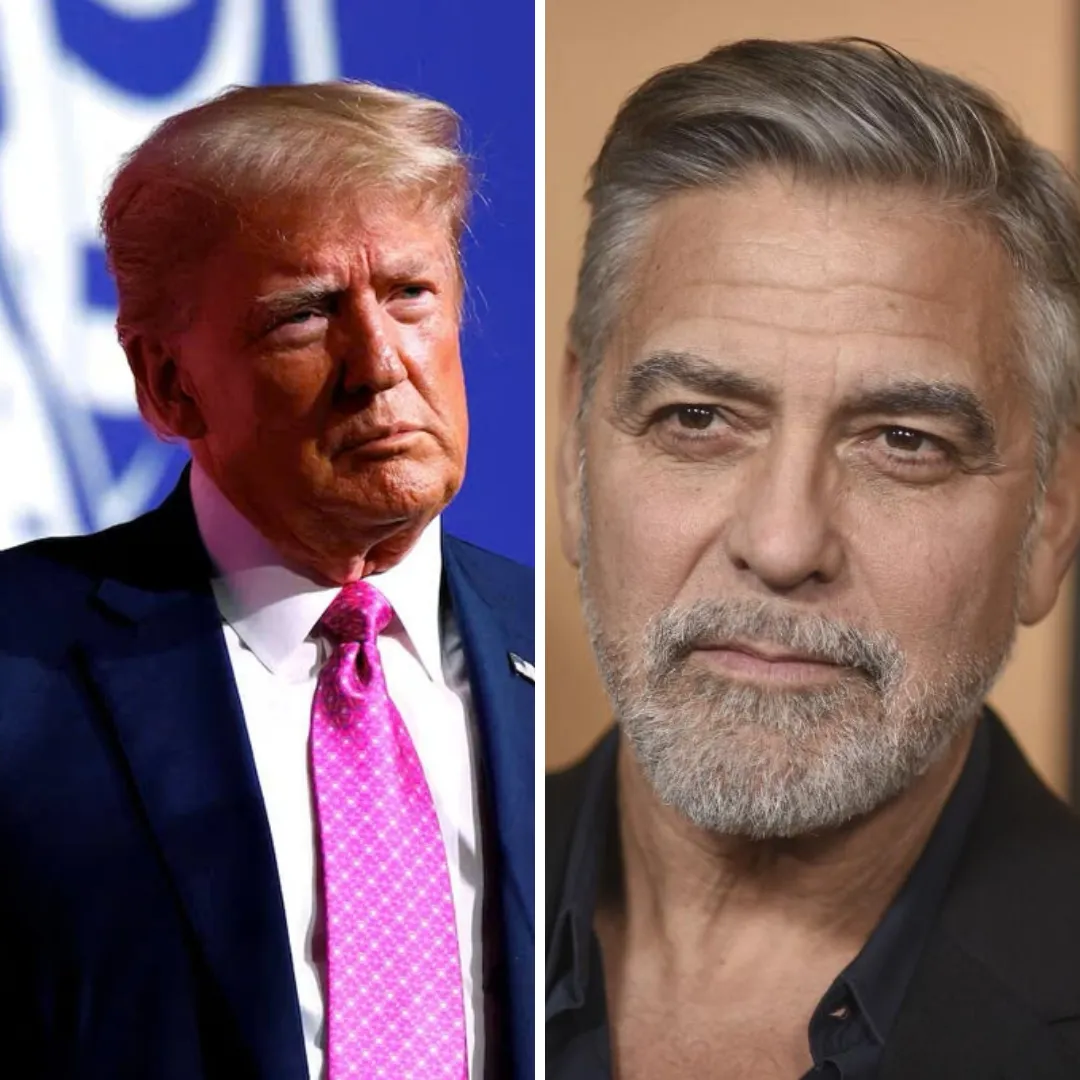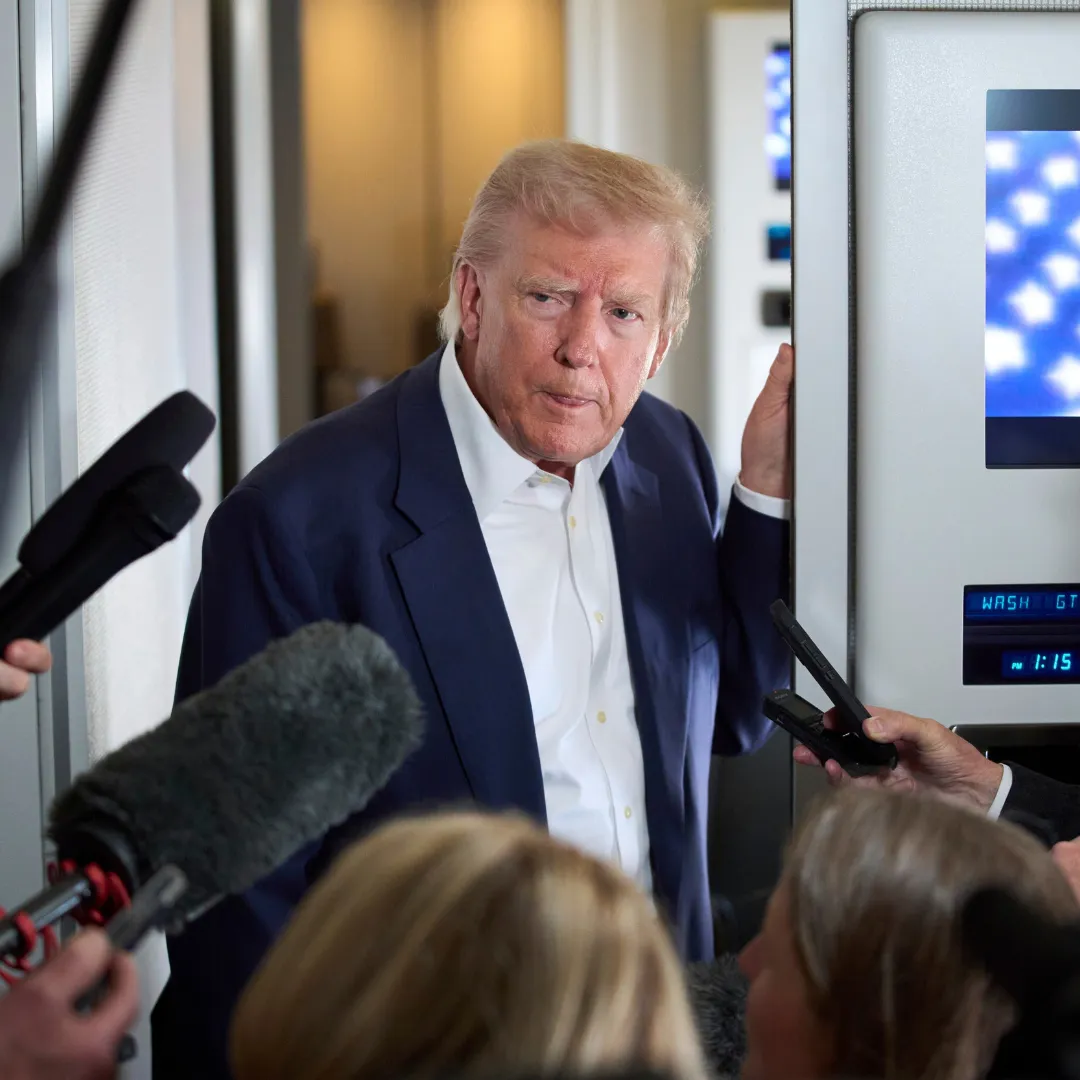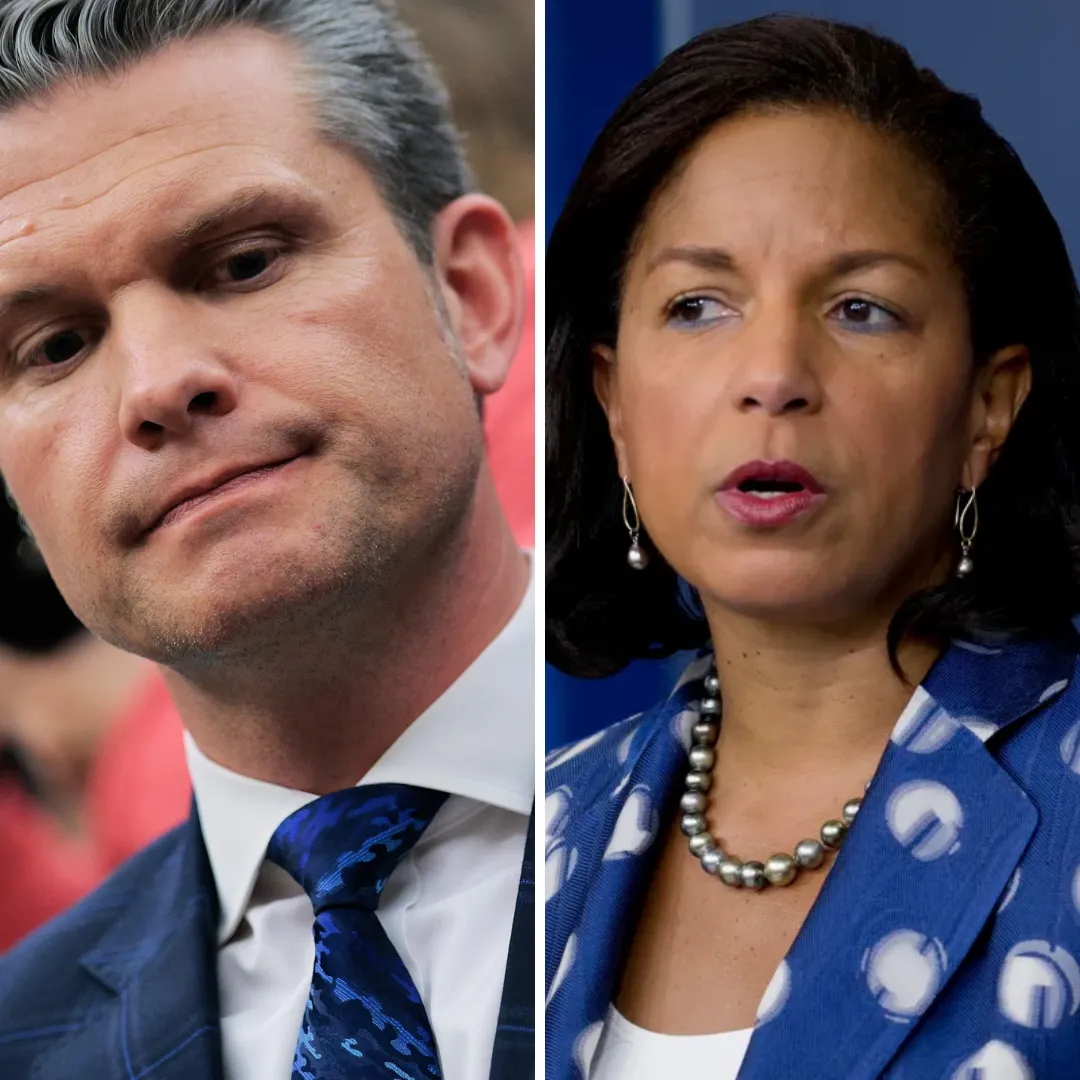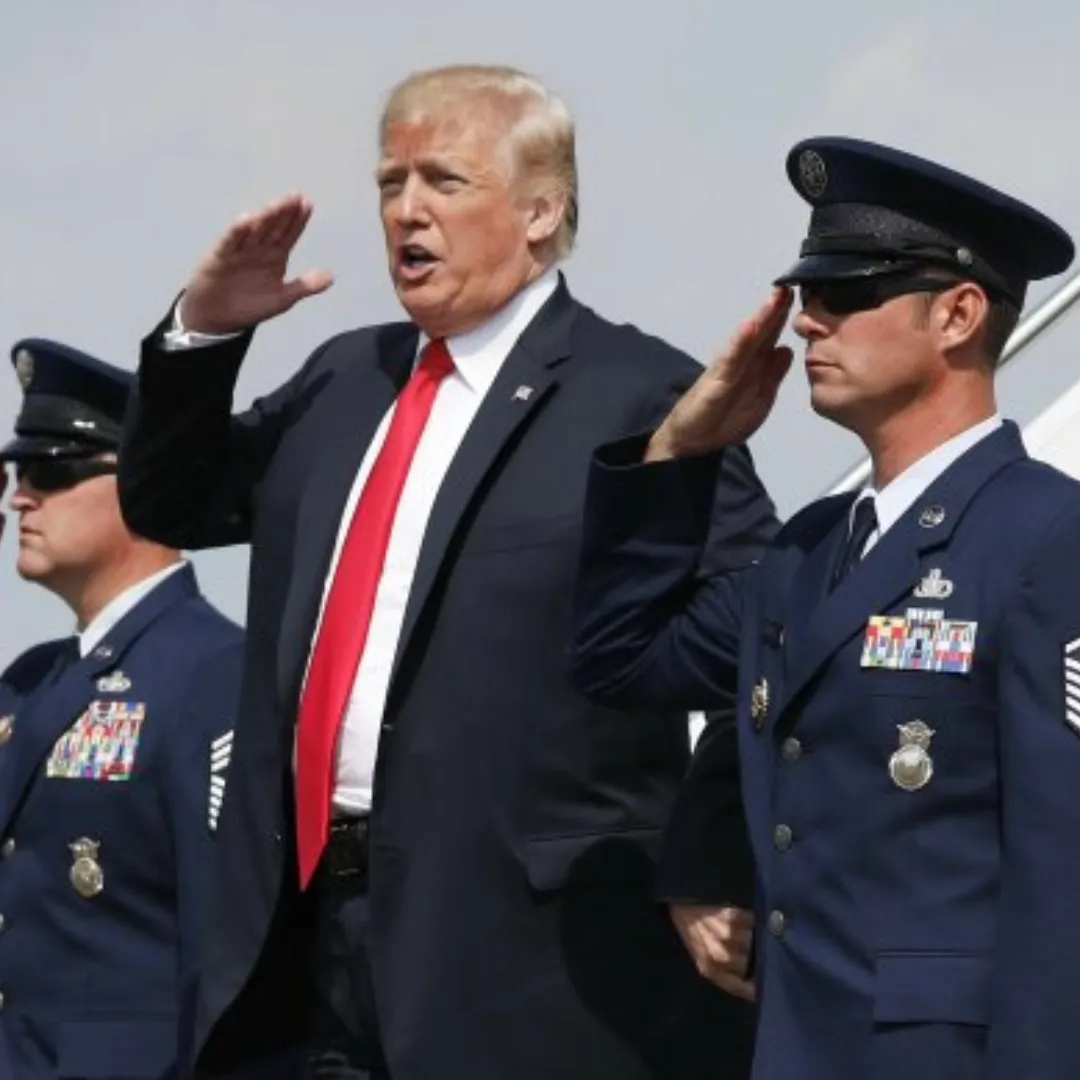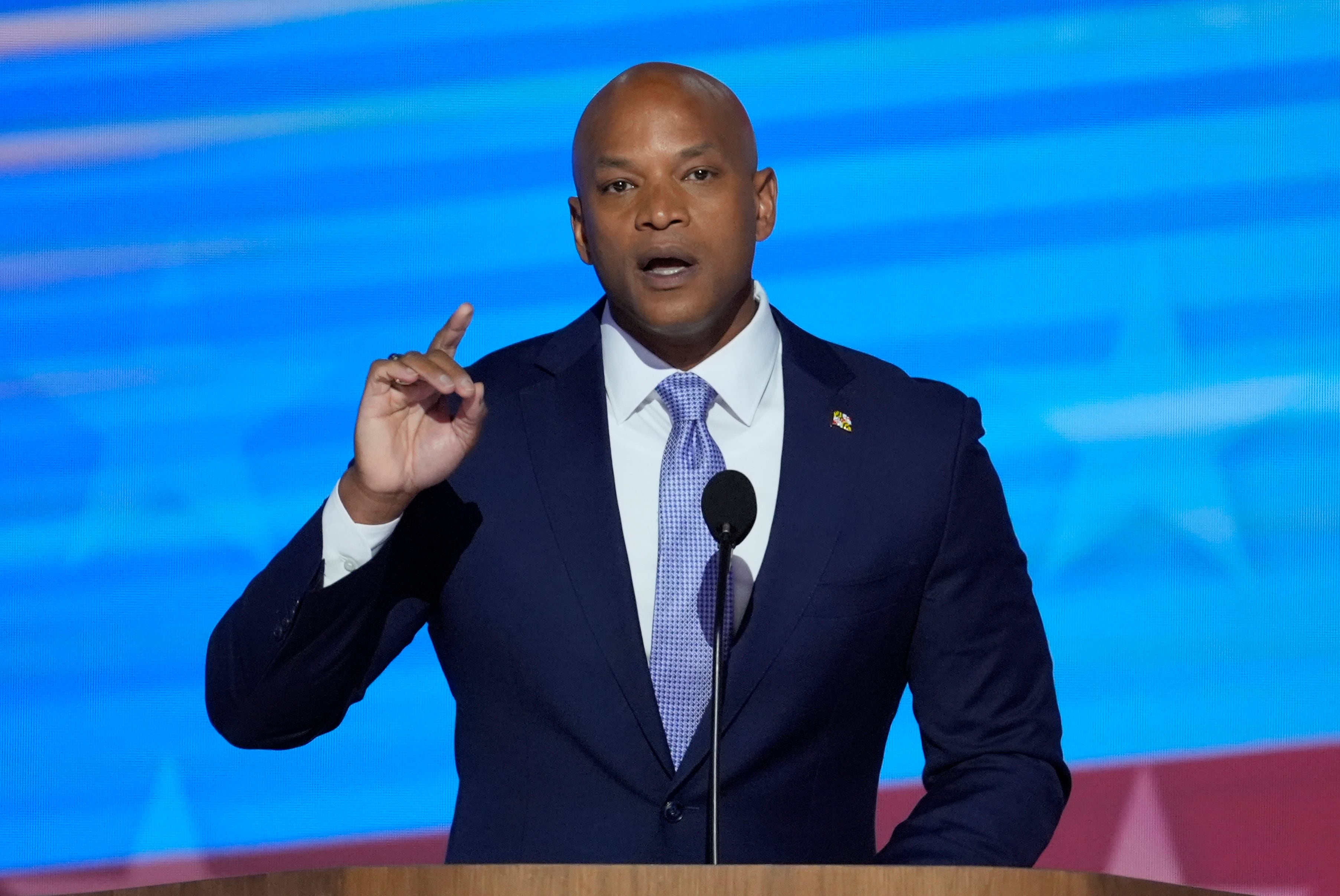
Maryland Governor Wes Moore is positioning himself as a rising star in the Democratic Party, though he has yet to fully embrace speculation that he might run for president in 2028. As a prominent political figure, Moore has used recent public appearances to enhance his national profile, even as he downplays any immediate presidential ambitions.
The governor, who made history as Maryland’s first Black governor and only the third Black person to serve as a state governor in the U.S., has found himself increasingly in the spotlight, particularly after being discussed as a potential running mate for Vice President Kamala Harris in the 2024 election.
However, in a recent appearance on ABC’s "The View," Moore firmly stated that he was not planning to run for president in 2028, despite growing speculation and his increasing visibility on the national stage.
Moore's rise in national politics comes as the Democratic Party is grappling with its future leadership, especially following the recent election setbacks. Many have questioned who will lead the party into the future, and Moore, alongside other prominent Democratic figures, seems to be positioning himself as a potential contender.
His actions, including speaking at major events and visiting key battleground states, have kept the possibility of a 2028 bid alive, though Moore has repeatedly said that he is focused on his current role as governor. He explained that he is not distracted by presidential speculation, but rather focused on delivering for Marylanders and ensuring his state's future.
While Moore’s remarks about not running for the presidency in 2028 are clear, the public events he’s attending and the media appearances he’s making suggest that he may be laying the groundwork for a national campaign at some point in the future.
Moore’s stance on 2028 has raised eyebrows within the Democratic Party, with some questioning whether his public actions are indeed in alignment with his stated focus on Maryland.
Political strategist Len Foxwell observed that while Moore has denied any intentions to run for president, his recent schedule — including appearances on national talk shows and visits to early primary states — suggests that he is doing little to discourage the speculation about his future.
Moore’s outreach to key Democratic strongholds, including his trip to Pennsylvania, where he delivered a commencement address at Lincoln University, has kept him in the public eye. His speech, which emphasized patriotism and the importance of standing together in times of crisis, resonated with many in the Democratic base, further solidifying his growing national profile.
Despite the public denials, Moore’s actions reflect the realities of modern political campaigning, where candidates often test the waters before fully committing to a run. His appearance on "The View" and subsequent trips to important states like Pennsylvania and New Hampshire only added fuel to the speculation about his future ambitions.

At the same time, Moore has also used these platforms to showcase his leadership style and vision for the country, all while emphasizing his focus on Maryland’s needs. His background as a former nonprofit leader and military veteran allows him to present a compelling narrative of service and dedication, both of which could serve him well in a potential national campaign.
While his gubernatorial tenure is still in its early stages, Moore’s ability to balance state leadership with national exposure suggests he could be preparing for something larger down the road.
In his speech at Lincoln University, Moore used the story of his grandfather, an alumnus who was run out of the U.S. by the Ku Klux Klan, to underscore the importance of patriotism and resilience. The story resonated with many in the audience, particularly as Moore tied it to the broader message of unity and collective action. His focus on “real patriotism” during uncertain times connected with the audience, reinforcing the idea that the nation’s challenges can be overcome through collective effort. Moore’s ability to draw upon personal anecdotes and historical context is part of what makes him an appealing figure for a national audience. His calls for unity and his emphasis on the importance of standing up for one’s values in times of crisis speak to the kind of leadership that many Democrats are looking for as they prepare for future elections.
Despite Moore’s national aspirations, his political future is still very much tied to his success as governor of Maryland. In 2026, Moore will face reelection, and his performance in that race will play a crucial role in shaping his political trajectory. Some Democrats see Moore as a potential contender for the 2028 presidential race, but they also understand that his reelection campaign will be a critical test of his leadership.
Democratic strategist Fred Hicks argued that a strong showing in the 2026 election would bolster Moore’s chances of making a legitimate run for higher office in the future. “If he can win resoundingly, and he can win key demographics, that will only increase the calls for him to get into the race,” Hicks said.
Moore’s success in securing a second term as governor would provide him with a solid platform to launch a national campaign, should he choose to pursue it.

The importance of Moore’s reelection campaign cannot be overstated. While his national profile continues to rise, his ability to deliver for Marylanders and successfully govern the state will be crucial in determining his future prospects. The dynamics of state-level politics can be unpredictable, and Moore’s political future is far from guaranteed.
His approval ratings have fluctuated in recent months, and with a competitive field in the 2026 gubernatorial race, Moore will need to demonstrate that he can effectively govern and address the concerns of voters. The Democratic Party, which has faced challenges in recent years, will be closely watching Moore’s performance as a gauge of his readiness for a larger role on the national stage.
While Moore’s future in politics remains uncertain, his rising profile is indicative of a broader trend within the Democratic Party. As the party seeks to rebuild and move forward after the challenges of the past few years, figures like Moore are emerging as potential leaders who could carry the party into the future.
Moore’s blend of experience, charisma, and vision for the country makes him an attractive figure for many in the Democratic base. His leadership on issues like education, poverty alleviation, and economic inequality resonates with a wide range of voters, and his emphasis on unity and collective action provides a sharp contrast to the divisive rhetoric often associated with the Trump administration.
Moore’s future in national politics may depend on how he performs in his second term as governor, but his current trajectory suggests that he will continue to be a prominent voice in the Democratic Party for years to come.
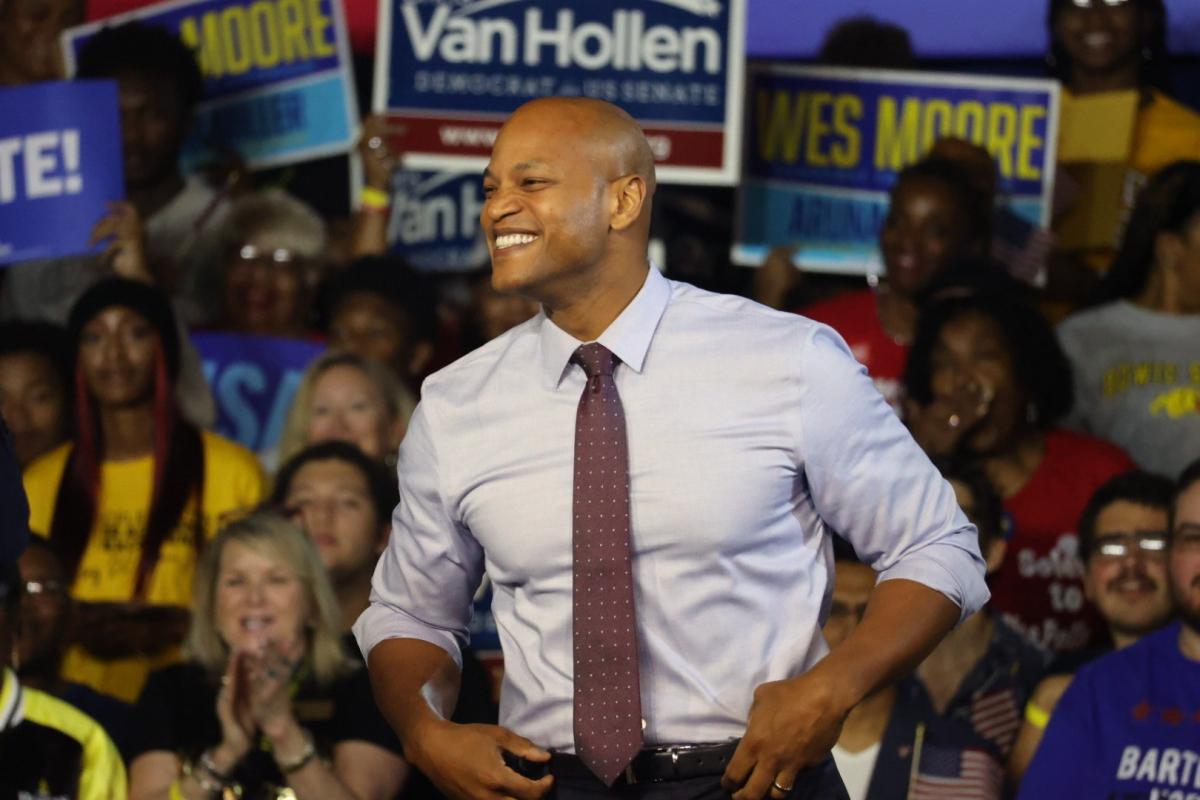
As Moore continues to make appearances across the country and strengthen his national profile, the question of whether he will run for president in 2028 remains a topic of speculation. While he has firmly denied any intentions of seeking the presidency in the near future, his growing influence within the party and his increasing visibility on the national stage suggest that he could play a key role in shaping the Democratic Party’s future direction.
Whether Moore chooses to run for president in 2028 or continues to focus on his work in Maryland, he is clearly positioning himself as a leader to watch in the coming years. As the Democratic Party navigates the challenges of rebuilding and responding to the growing influence of the Republican Party, Moore’s voice and leadership will be essential in shaping the party’s future.
The 2028 election may be years away, but Moore’s rise as a prominent Democratic figure suggests that he will be an important player in the political landscape for the foreseeable future.
